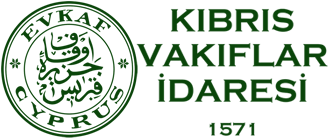
LOADING...

LOADING...
TRADITION OF CHARITY SINCE 1571
Mision of Cyprus Evkaf Administration:
To spread the spirit of charity to all for a better world.
VAKIF (FOUNDATION) CIVILIZATION AND CULTURAL HERITAGE
Vakıf means to remove a property from private ownership and devote it for charitable purposes forever. Income from the use of that property then is used for the benefit of all without any discrimination regarding race, religion or nationality, and for the benefit of all creatures including animals and nature in general.
Similar to Christianity and Judaism, giving charity or doing good for the benefit of others is the most important characteristic of Islamic tradition. In the Holy Quran, God Says ‘O muslims, every community has a characteristic, you must be zealous in doing good things, surpass each other in doing good’ (Quran, chapter 2, verse 148). In other words, muslims believe that to be proper muslims they must compete in doing charitable activities. Based on this understanding, muslims established thousands of vakıfs (foundations) over the centuries.
Ottomans made this command of God the basic principle of their civilization perceiving charity every act and idea that fosters tranquillity and contentment. Every virtuous and benevolent act was considered a good deed, from greeting people with a smile to establishing virtuous institutions.Systematic good works included all the structures that surrounded a mosque such as schools, hospitals, soup kitchens, fountains, baths, kervansarays (motels), bazaars, tombs, graveyards and the like. In other words, institutions of civil society that served people gratis from cradle to grave.Institutions were established based on all human values (human love, women's rights, children's rights, protection of the environment, animal rights, patient rights, protection of the needy, etc.)
Vakıfs served muslims and non-muslim alike without any discrimination as evidenced by the mosque, synagogue and church that stand together in the garden of Darülaceze(almshouse) today.
CULTURAL HERITAGE IN CYPRUS
Cyprus Evkaf Administration has been showing good will by helping with protection/restoration of both mosques and churches all over the island. A recent example is restoration of the Apostolos Andreas Monastery project where Cyprus Evkaf Administration has donated two and a half million euros. Further, restoration and maintenance of the Armenian Church in Nicosia, cleaning of more than 30 churches, securing, caring, repairing of the bell towers are among daily activities of Cyprus Evkaf Administration.
In addition to protecting the tangible cultural heritage, Cyprus Evkaf Administration, also works for preserving and keeping alive the philosophy of charity as an intangiblecultural heritage and carrying it to future generations. The philosophy behind the Foundation is based on goodness and sharing. This philosophy, which for hundreds of years was implemented in the lands ruled by the Ottoman Empire and has created a civilization of charity, is a reflection of the feelings of love and compassion, shown to human and allcreatures. This can be understood from the previously established foundations such as;
• The foundation that builds cemeteries for muslims and non-muslims (jews and christians)
• The foundation that educates poor students,
• The foundation which protects forests and trees,
• The foundation that helps retire aged work animals like horses and cows,
• The foundation that provides help to elderly,
• The foundation that gives water and food to street animals and birds,
• The foundation that feeds the homeless.
There are 2221 foundations registered in the 452 years old Cyprus Foundation Administration. About half of thesefoundations were established by women.
Today, to achieve peace and tranquillity both in Cyprus and all over the world we need to emphasize the vakıf values in all aspects of our lives and teach these values to our children from early ages. Focusing on producing and sharing rather than consuming, bringing the benefit of all humanity to life rather than individual benefits will naturally bring peace and solution to our beautiful island and the world.
In the economic sense, the foundation; It is a legal system that envisages the voluntary sharing of opportunities and assets obtained through personal work and effort.
According to the Turkish Civil Code, the foundation; real or legal persons are groups of goods with legal personality that are formed by assigning sufficient goods and rights to a specific and permanent purpose.
The foundation is the institutionalized form of the feeling of cooperation and solidarity that has existed throughout history. In that case, the foundation is a set of systems aiming at the happiness of all humanity.
The first foundation in history; It is accepted as the first foundation that Hazrat Umar (r.a.) gave a piece of land that fell to him as booty after the conquest of Khaybar for the benefit of the poor, slaves, guests and those in the way of Allah, on the condition that it is not sold, inherited or donated.
In addition to the verses that encourage "competition in charity, infaq and charity", the following hadith-i sharifs have been effective in the rapid spread and importance of foundations in Anatolia.
“When the son of Adam dies, his work ceases, but with the exception of three: Charity, useful knowledge, and a good son who prays for himself.”
"The most auspicious of people, it is people who are useful. The best of wealth is that which is spent in the way of Allah. The best of the foundation is the one that meets the needs of the people the most.”